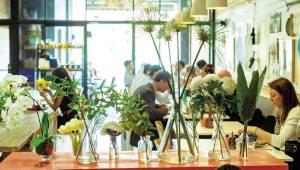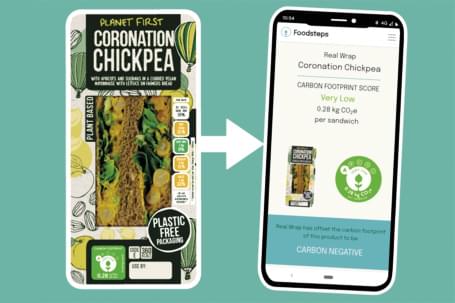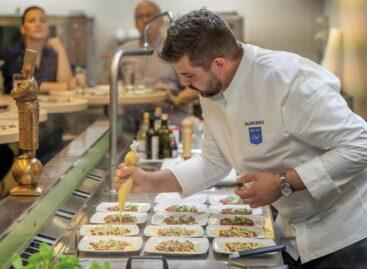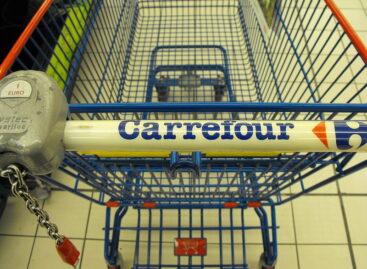Your restaurant, my future
In the last 10 years culinary trends also started going in a sustainable direction. What does running a restaurant sustainably mean? Sourcing is essential, as according to a life cycle analysis from the USA, 90% of a restaurant’s ecological footprint comes from sourcing. It is best if a restaurant uses eco-friendly cleaning materials. Minimising waste is of utmost importance. Estimation is that every year 1.8 million tonnes of food waste is generated in Hungary, and about 15% of this is produced in hospitality.
Optimal waste management, selective collection, composting green waste, collecting leftover food for future use, and using eco-friendly or reusable packaging material are all essential from a sustainability perspective. Being sustainable isn’t easy for a restaurant owner, and it can’t be expected from them to jeopardise the existence of the business due to sustainability reasons. This is why the best strategy for a restaurant is to make green changes step by step, doing whatever they can, but not more to operate sustainably.

Undertakings have it sometimes hard to produce the usually higher price of sustainable products – gradualism may be the best strategy
Professional and moral support
There are more and more food companies and grocery retailers that champion the cause of sustainability, although some of them only do it in their communication, as a kind of moral support. METRO has launched a campaign called My Sustainable restaurant, which involves a more than 100-page practical guide to explain the characteristics and benefits of green restaurant management, also offering practical advice – this will be available in Hungarian translation soon.

In 2022, apps help measure each product’s carbon footprint
Another pioneering project that METRO Magyarország supports is the Plant-based Conference. It will take place for the 2nd time at the company’s Gastro Academy on 10 November, and the main topics will be meat-free eating, the spreading of flexitarianism, and the general boom in the market of meat alternatives. Meanwhile in Spain the parliament will vote on a new bill, which would make it mandatory for restaurants from 2023 to have a food waste reduction programme. In Hungary the Responsible Gastro Hero foundation is focusing on the waste management practices of restaurants, for instance by giving them advice on composting. //
A good example
Compass Group, one of the biggest food service businesses in the world, has set the goal of becoming CO2-neutral by 2030. The tasks they wish to perform in order to reach this goal are the following: building a fleet of e-vehicles, using green electricity, using cooking ingredients with low CO2 emission level and plant-based protein, sustainable sourcing, prioritising recycling, cutting waste production by 50% until 2030, increasing the proportion of local and seasonal product use, investing in climate-friendly projects all over the world, and supporting the cause of deforestation-free agricultural production. //
This article can be read on pp 86-87 of Trade magazin 2022.08-09.
Related news
Business Superbrands award for METRO Gastro Academy
In 2024 the knowledge centre of METRO Magyarország, the METRO…
Read more >K&H: carbon dioxide emissions do not decrease by themselves
In the absence of a sustainability strategy and concrete carbon…
Read more >Roland Berger: The 1.5°C target can be more easily reached by joining forces with the world’s largest carbon dioxide emitters
The world’s thousand largest carbon dioxide-emitting industrial assets are owned…
Read more >Related news
Valeo Foods Completes Acquisition Of Appalaches Nature
Valeo Foods Group has completed the acquisition of Appalaches Nature,…
Read more >Carrefour grows in France and Brazil, lags behind in rest of Europe
Carrefour says it is rather pleased with its financial results…
Read more >Food and beverage innovation plunges nearly 50% since 2007: Mintel
The market research firm said about a quarter of items…
Read more >








